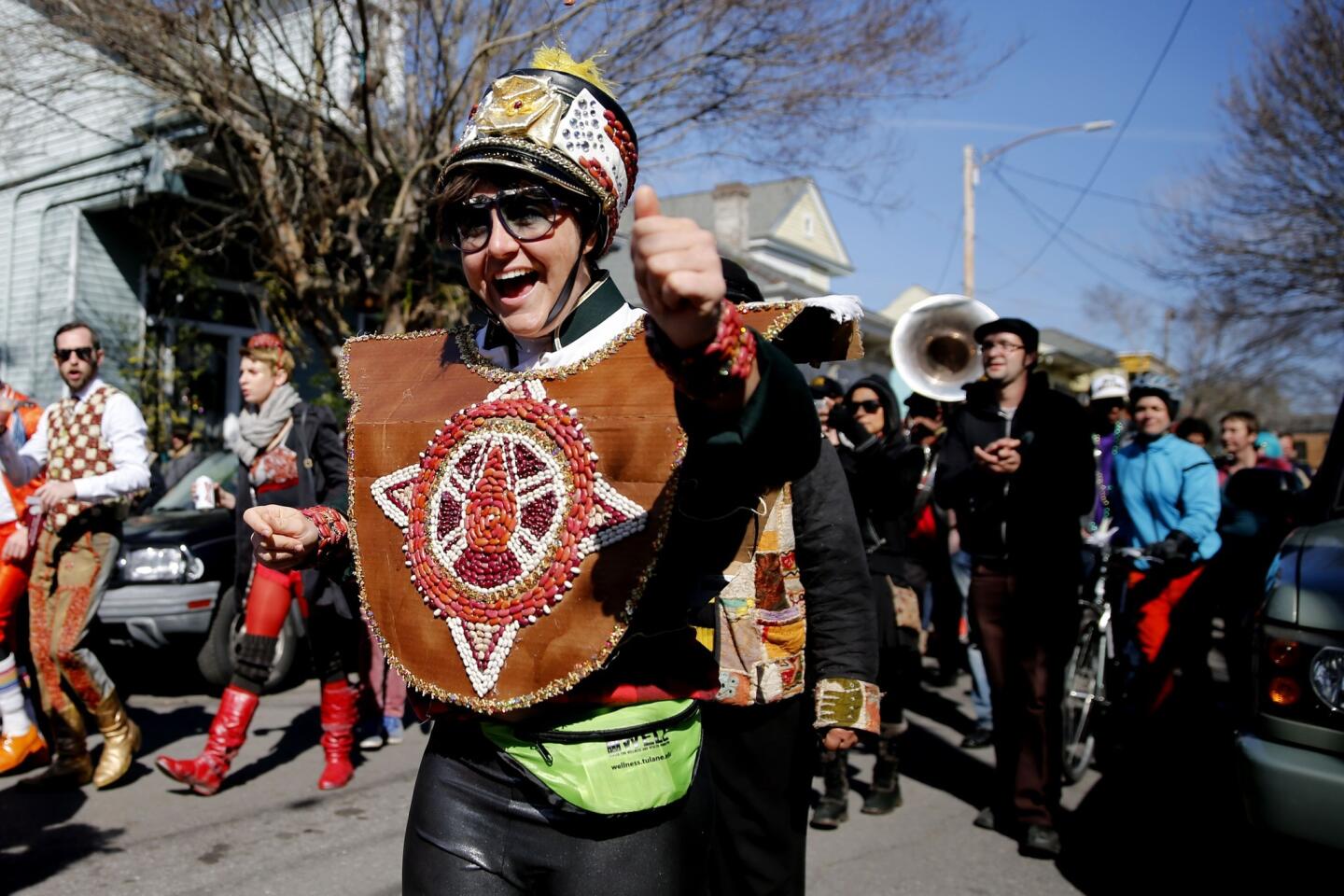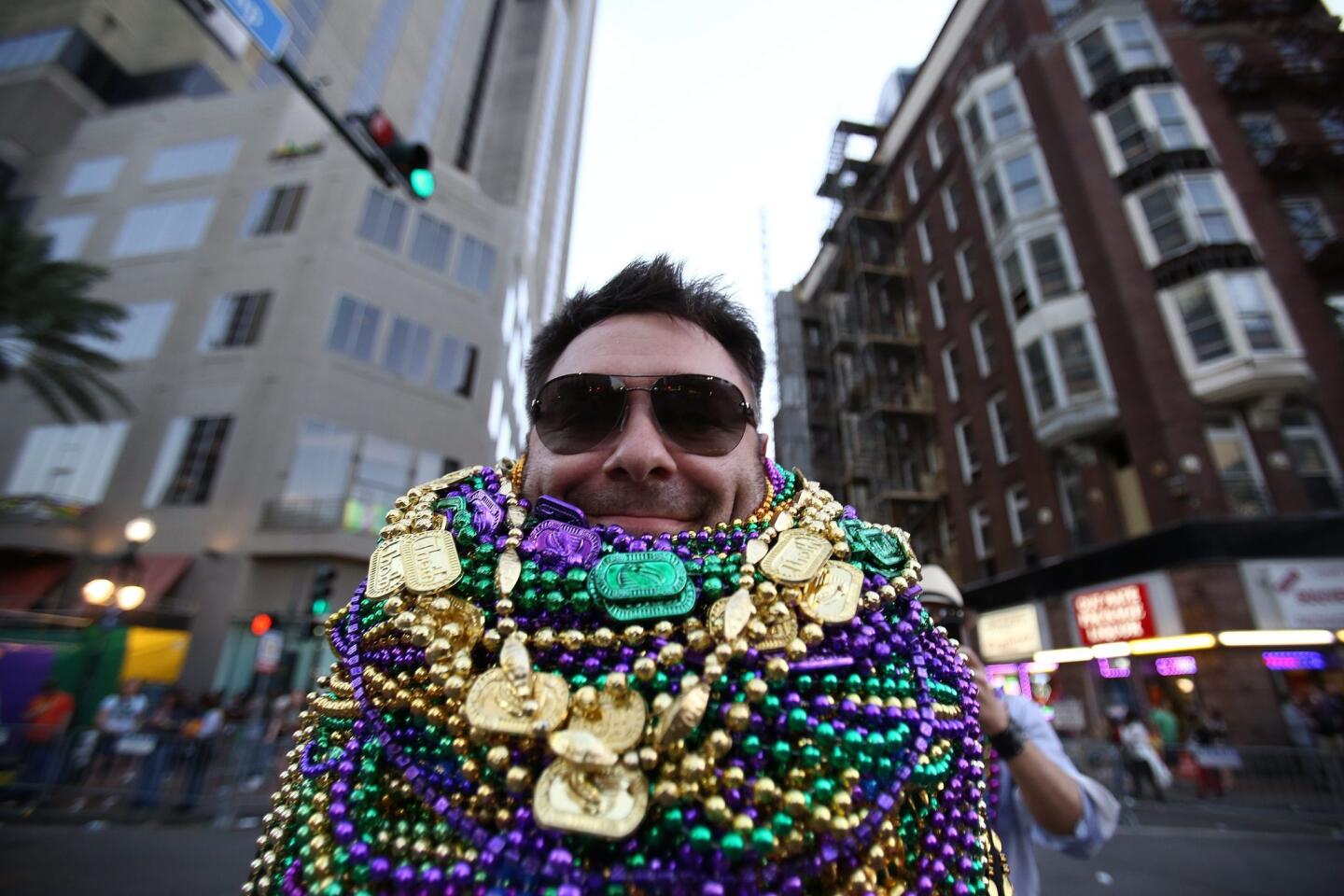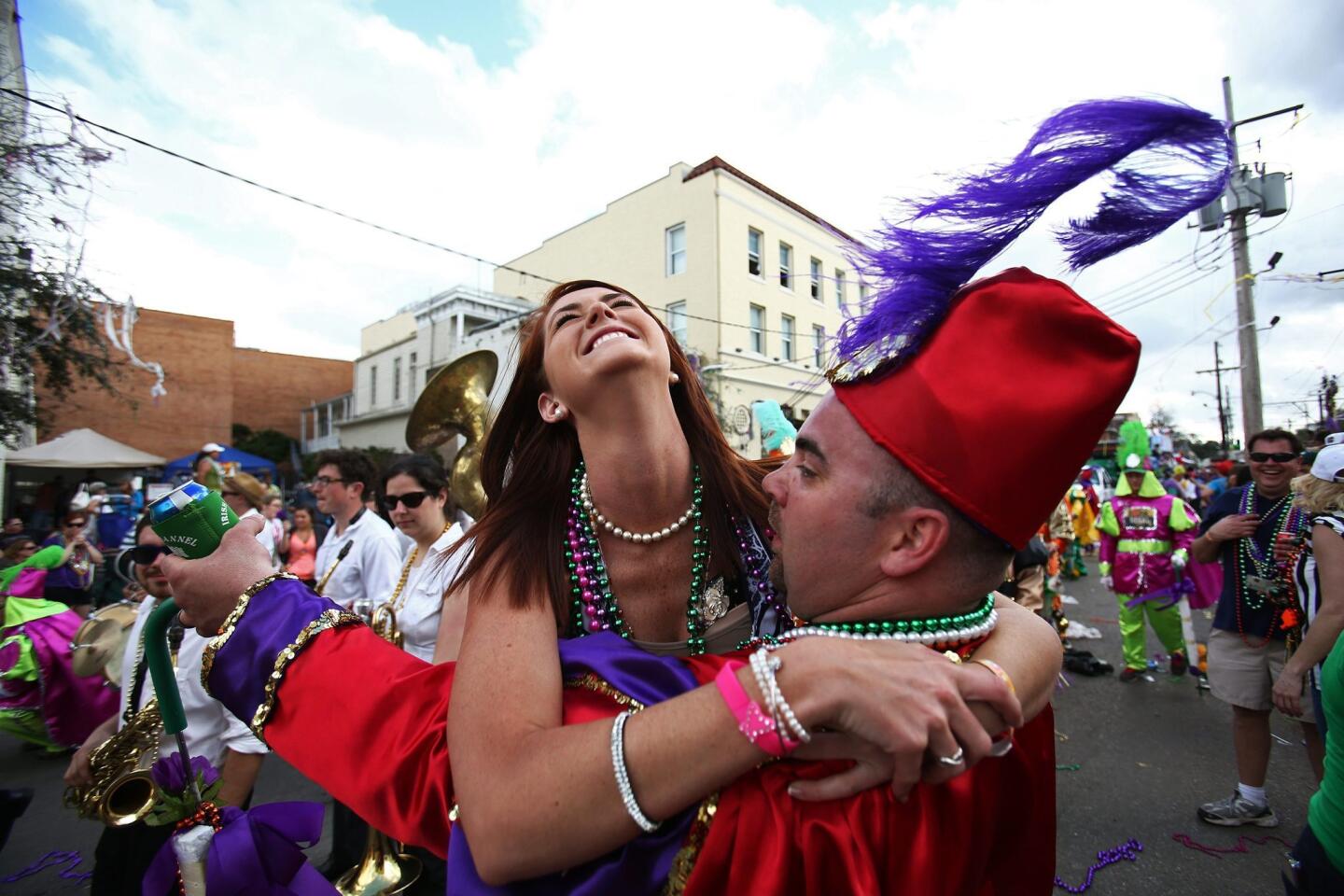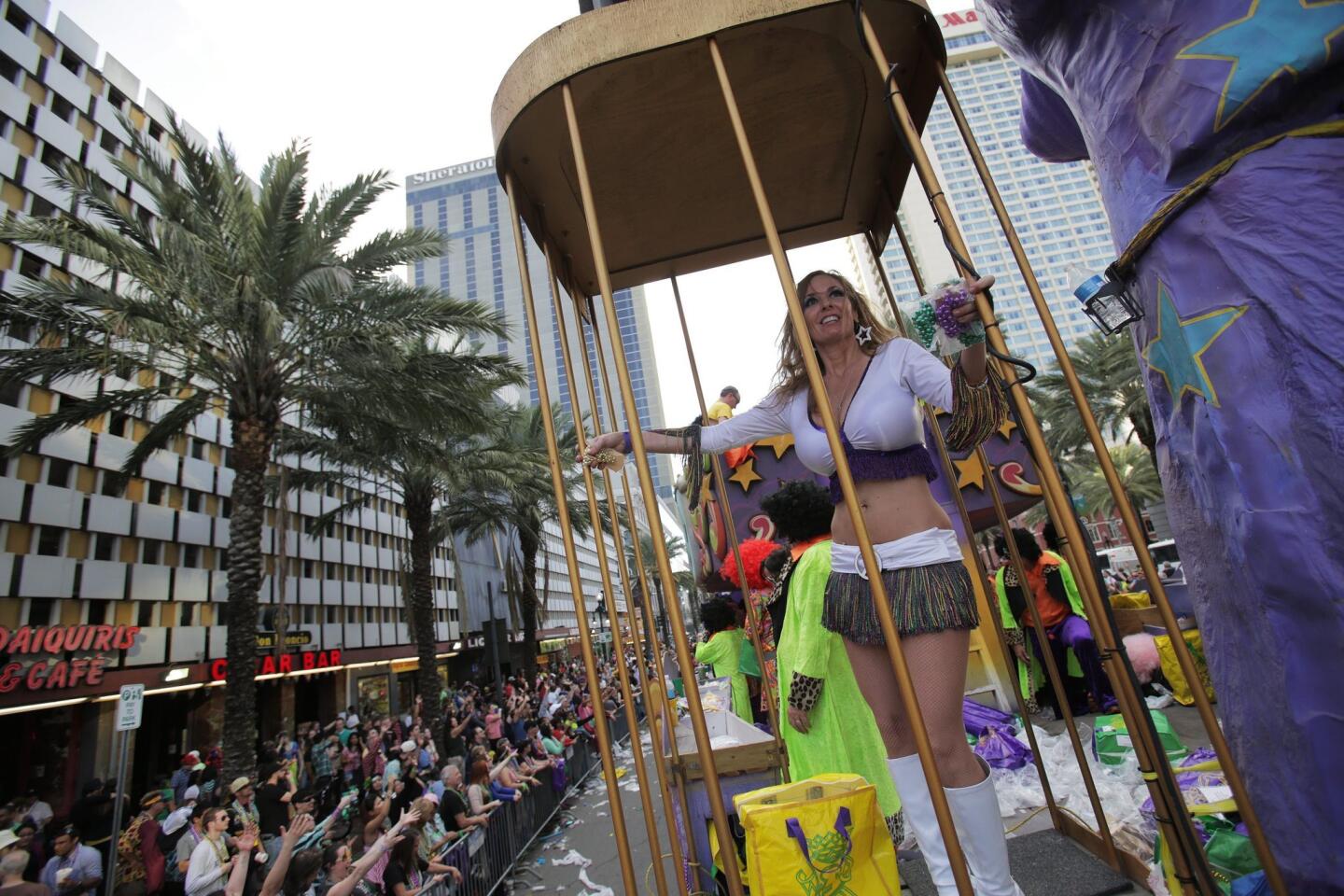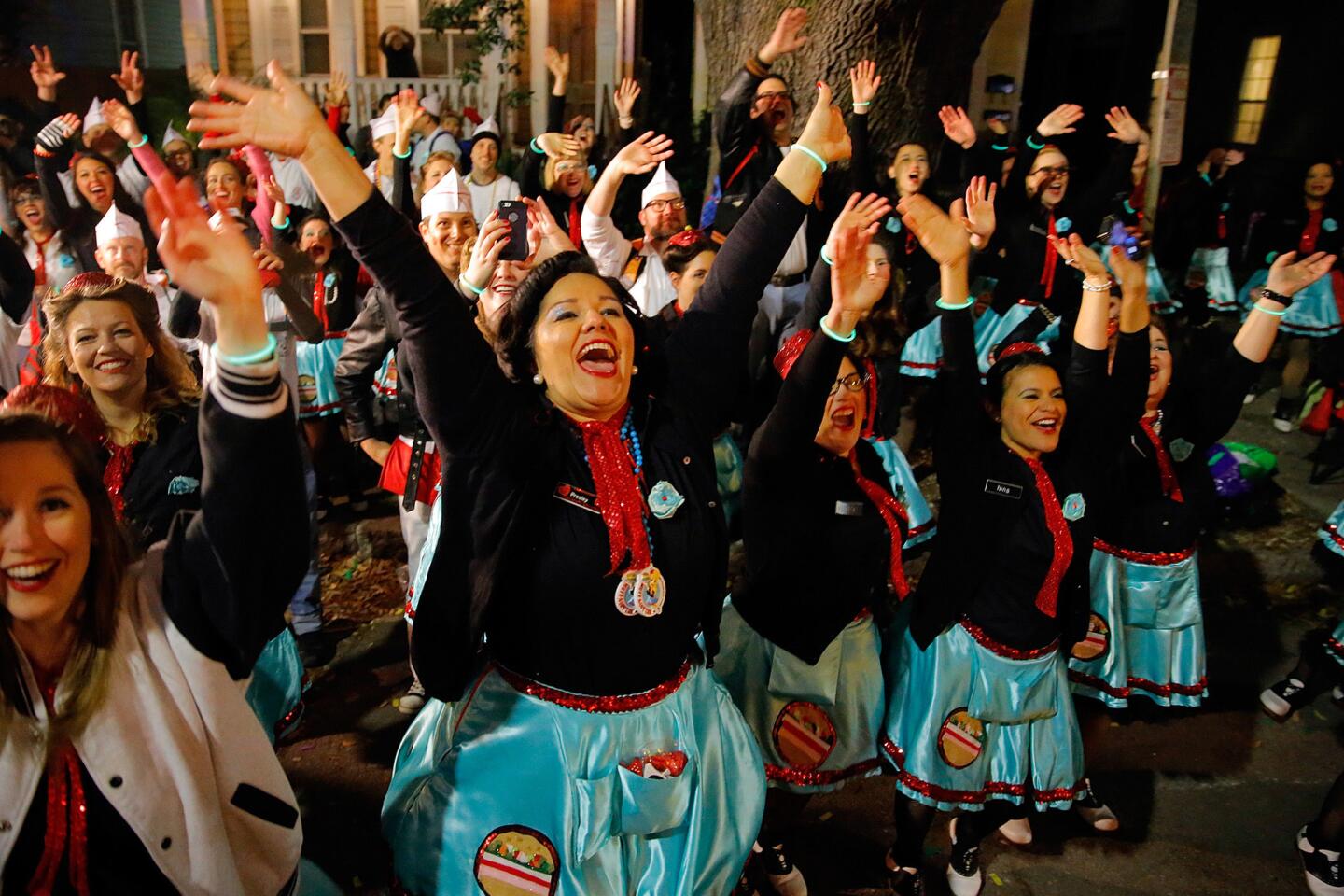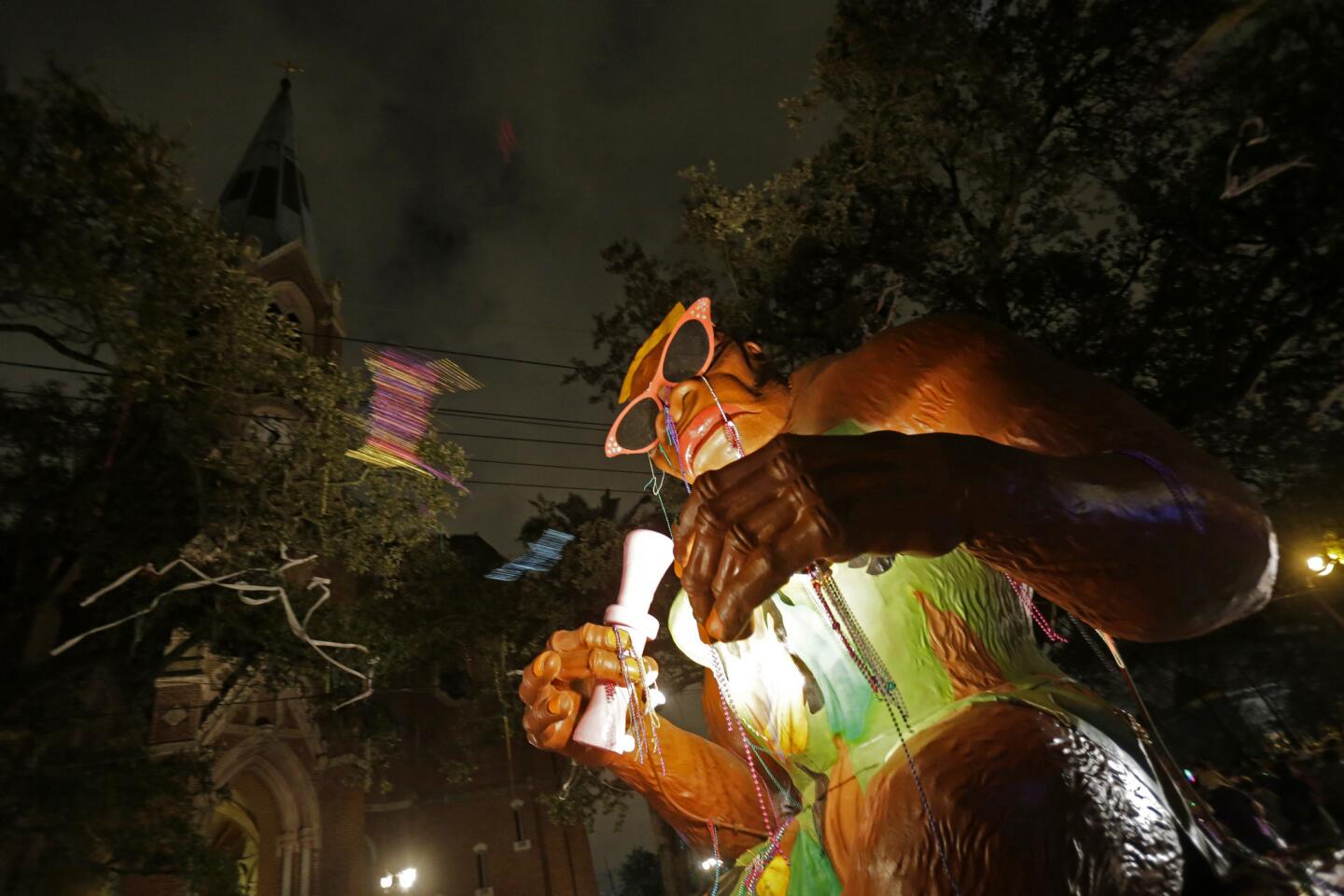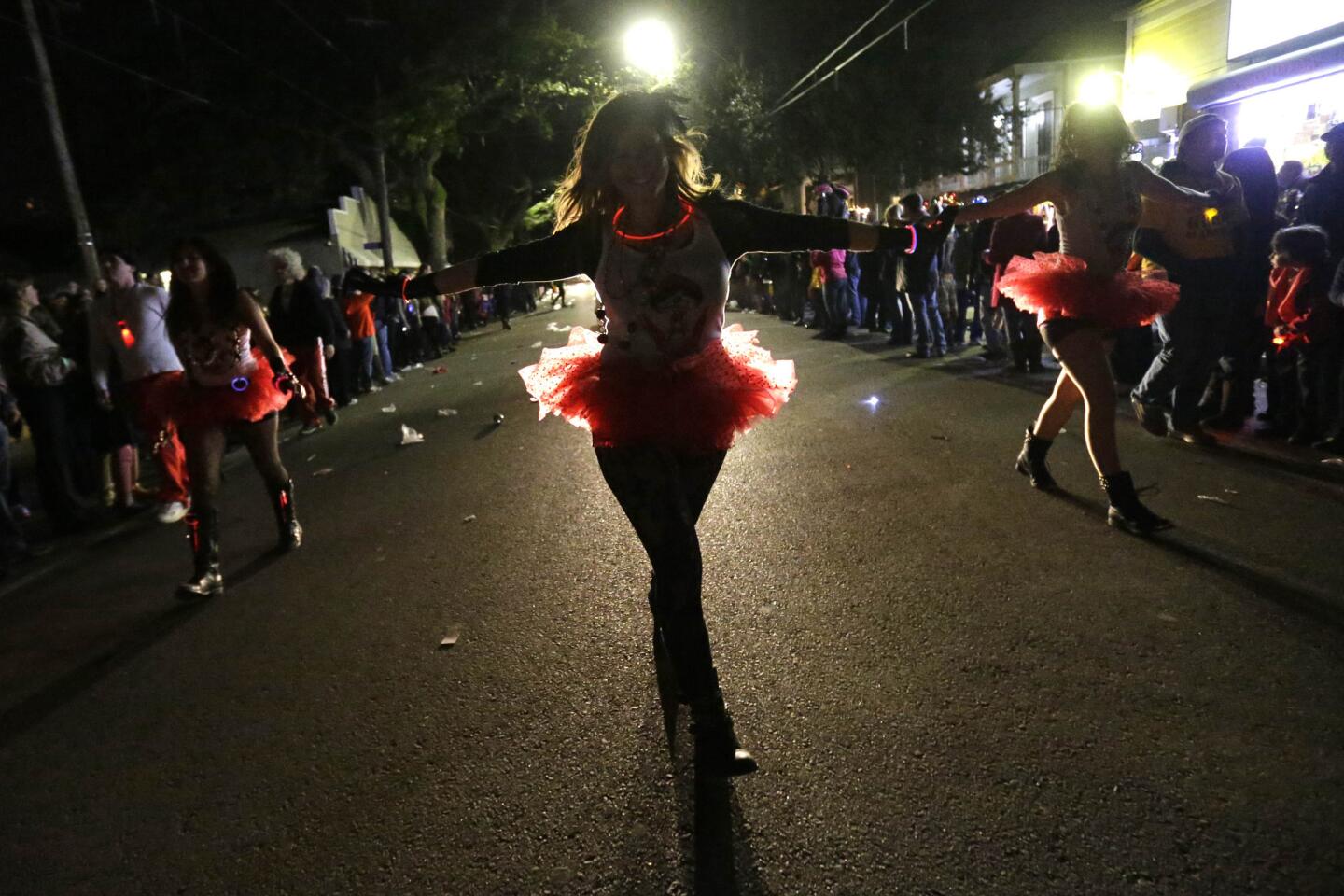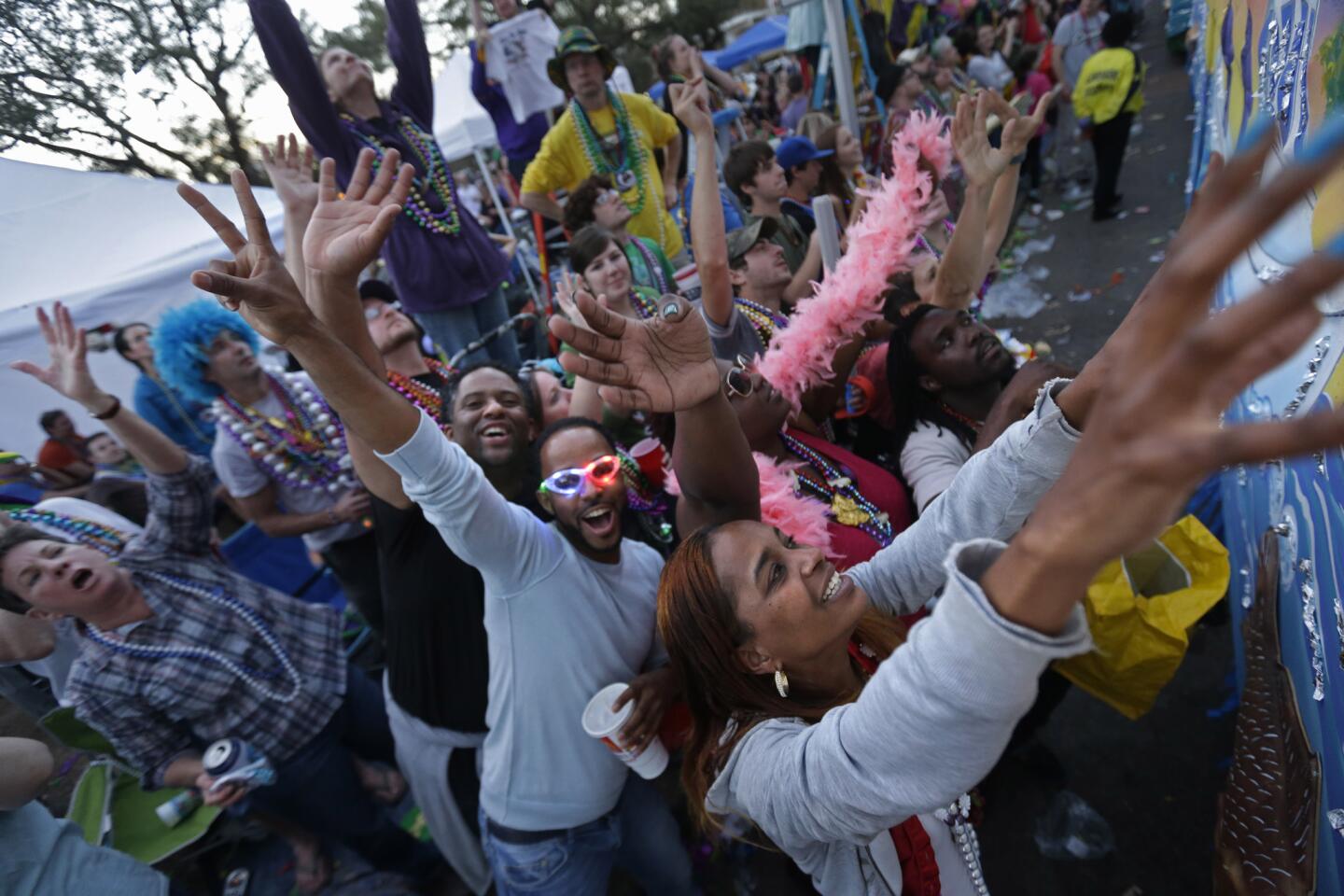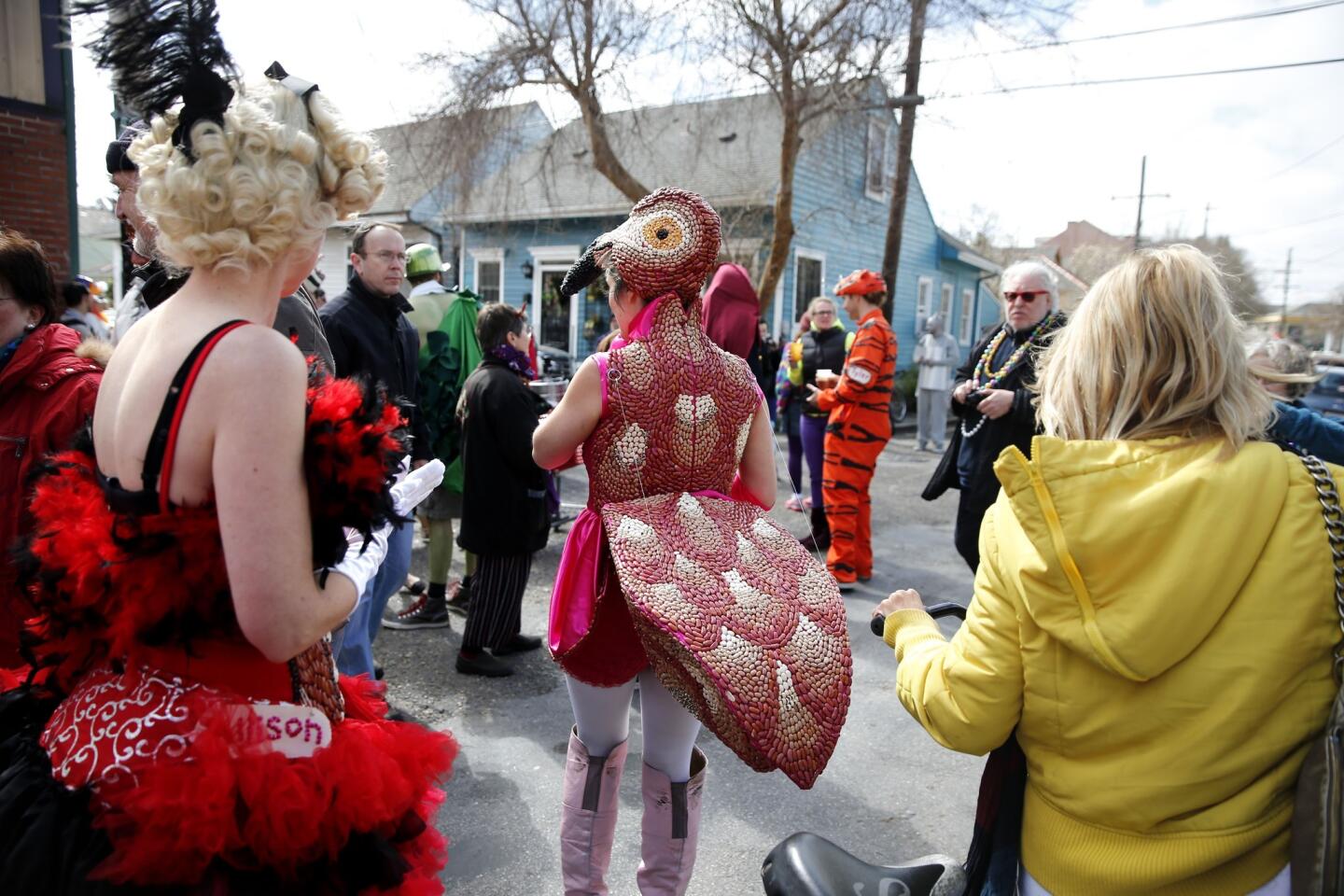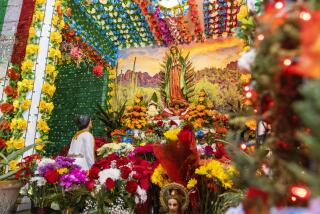Mardi Gras: 5 things you need to know to ‘Let the good times roll’
- Share via
For those of you who think Mardi Gras is just about free pancakes and colorful beads, think again. Mardi Gras, which literally means Fat Tuesday, is deeply embedded in the Christian ethos, with a rich tradition of carefree, excessive pleasure and acting out as the counterpoint to the upcoming season of Lent. Here are some key considerations as tens of thousands of people gather in New Orleans, the traditional heart and soul of Carnival celebration in the United States.
1) What is Mardi Gras?
Mardi Gras is French for Fat Tuesday, the day before Ash Wednesday, the first day of Lent, the season of penance and prayer for Christians around the world. From New Orleans to Rio de Janeiro and from Europe to Christian enclaves in Asia, it is a time to let loose one last time before the reflective days of Lent end with the joy of Easter, almost seven weeks away. It is also known as Shrove Tuesday as in the religious practice of confessing to sins.
2) What’s with the pancakes?
Part of the tradition of Fat Tuesday is eating rich, fried foods and using up the larder of butter, eggs and milk before the season of fasting. After all, the foods would spoil over the weeks they are banned, so why not have a last fling and gorge? The logical product for such a mixture is pancakes or any fried griddle cake. At least one restaurant chain, IHOP, has used the tradition to raise money for charity by giving away pancakes for donations on Fat Tuesday.
3) What about excessive alcohol consumption? Is that part of the celebration?
Well, yes and no. Part of the Carnival tradition is that anything goes and what happens at Carnival stays at Carnival. Participants wear masks to hide their identities, allegedly to allow mixing of social classes, but more probably to prevent any chance of later accountability. The excessive alcohol, the marching bands, the freedom to expose oneself is all part of the same wantonness that is the trademark of the celebration.
4) Why New Orleans?
There will be many celebrations in the United States and the world, but New Orleans is uniquely situated to exploit a variety of traditions because of the its cultural history. It is part French and part Spanish, both Catholic countries where Lent is taken seriously -- so Mardi Gras is as well. It is a port city picking up traditions from everywhere. And, perhaps above all, it is a former slave city where race and cultural identity have always been key factors. It is no accident that the major parade krewes are Zulu, African American, and the white Rex, with their separate kings. At Zulu, the participants will throw painted coconuts to the crowd while Rex is famous for medallions or doubloons. Of course, there are the colored beads in necklaces thrown like confetti.
5) Wht if I can’t get to New Orleans?
Try a king cake, a ring-shaped pastry in which a plastic figurine representing the baby Jesus is baked. Sometimes it is a bean or a metal bean instead of a figurine, but the point is the same: If you find the baby Jesus in your piece of cake (and don’t break a tooth in the process), you can be king for a day -- and maybe wish to go to Mardi Gras next year.
ALSO:
Woman who bought gun for Colorado killer is sentenced
Phoenix police officer dies, another critically hurt in shootout
Potential jurors in Bin Laden son-in-law case tell of Sept. 11 effects
More to Read
Sign up for Essential California
The most important California stories and recommendations in your inbox every morning.
You may occasionally receive promotional content from the Los Angeles Times.
